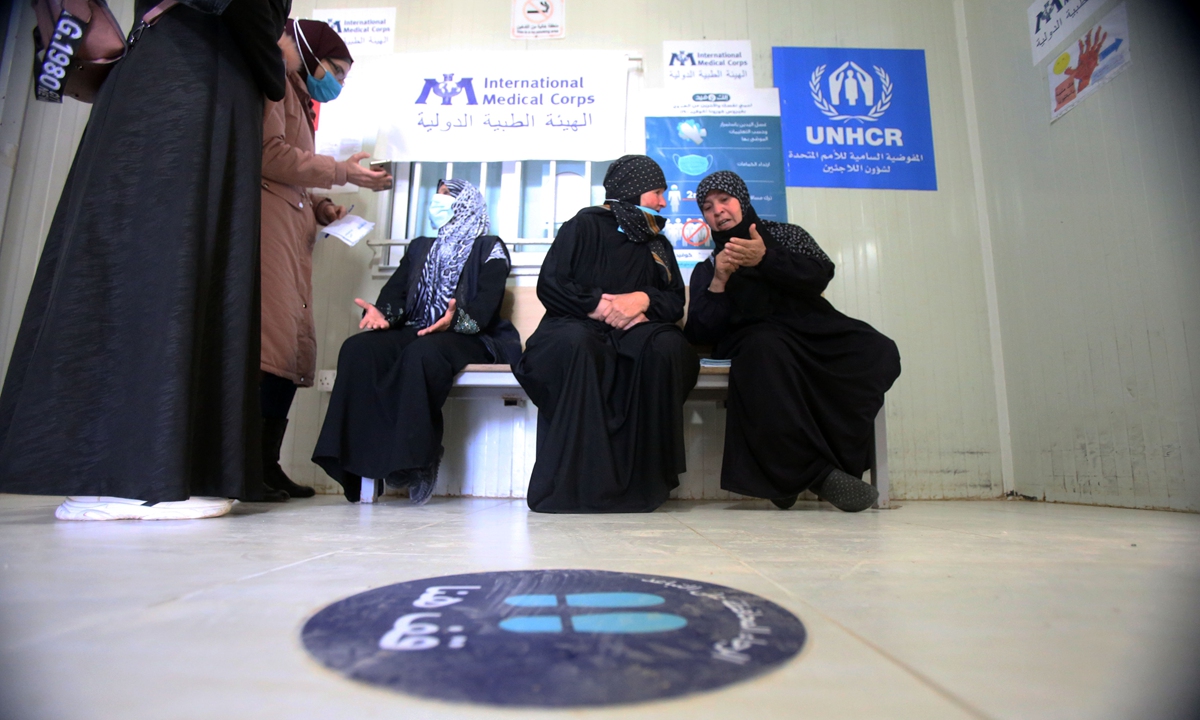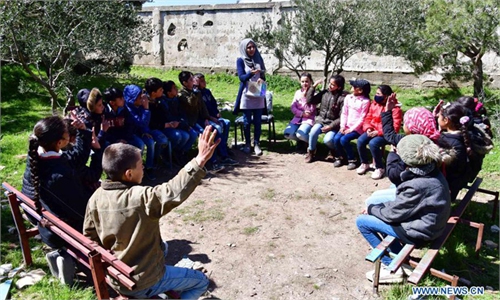WHO, GAVI alliance deliver 200,000 doses of AZ: UN
Syria gets vaccine under COVAX
Syria's government has received its first delivery of COVID-19 vaccines through the global COVAX initiative, with almost 200,000 doses of the AstraZeneca shot, UN officials said on Thursday.

Another 53,800 vaccines were delivered to the opposition-held north-west, which the statement said was an area that has seen large-scale displacement after major hostilities in 2020.
The statement said more deliveries were planned in coming weeks and months.
Akjemal Magtymova, head of the WHO's Syria mission, told Syrian health officials and UN partners at a ceremony on the arrival of the shipment in Damascus there were challenges ahead but the country had a strong track record in vaccination programs.
Magtymova said in March that a phased rollout aimed to inoculate nearly 20 percent of Syria's population by the end of 2021, or almost 5 million people in both government-held areas and the northeast and northwest.
The Damascus government's national program across state-run territory, where most of the country's nearly 20 million inhabitants live, will deploy dozens of teams across 76 hospitals with over 300 mobile units to access hard to reach areas.
Western NGOs say that apart from the logistics challenges of arranging vaccinations across combat frontlines, Syria faces the additional hurdle of international financial sanctions.
Syria was hard hit by the pandemic in 2020 during two spikes in infections in August and December, and health workers cite a rise in cases since February.
Syria has recorded 51,580 cases of COVID-19, but the actual number is likely much higher due to limited testing supplies, UN officials says.

Syrian refugees receive free Jordanian government COVID-19 vaccines with a UNHCR facilitating process at the first worldwide Covid-19 vaccination centre in a refugees camp on February 16, in Mafraq, Jordan. Photo: VCG
A joint statement by UNICEF, the World Health Organization (WHO) and the GAVI vaccine alliance said the delivery was "critical and timely" and would help health workers "to continue delivering life-saving services in an already exhausted health system as a result of the decade-long war."Another 53,800 vaccines were delivered to the opposition-held north-west, which the statement said was an area that has seen large-scale displacement after major hostilities in 2020.
The statement said more deliveries were planned in coming weeks and months.
Akjemal Magtymova, head of the WHO's Syria mission, told Syrian health officials and UN partners at a ceremony on the arrival of the shipment in Damascus there were challenges ahead but the country had a strong track record in vaccination programs.
Magtymova said in March that a phased rollout aimed to inoculate nearly 20 percent of Syria's population by the end of 2021, or almost 5 million people in both government-held areas and the northeast and northwest.
The Damascus government's national program across state-run territory, where most of the country's nearly 20 million inhabitants live, will deploy dozens of teams across 76 hospitals with over 300 mobile units to access hard to reach areas.
Western NGOs say that apart from the logistics challenges of arranging vaccinations across combat frontlines, Syria faces the additional hurdle of international financial sanctions.
Syria was hard hit by the pandemic in 2020 during two spikes in infections in August and December, and health workers cite a rise in cases since February.
Syria has recorded 51,580 cases of COVID-19, but the actual number is likely much higher due to limited testing supplies, UN officials says.



